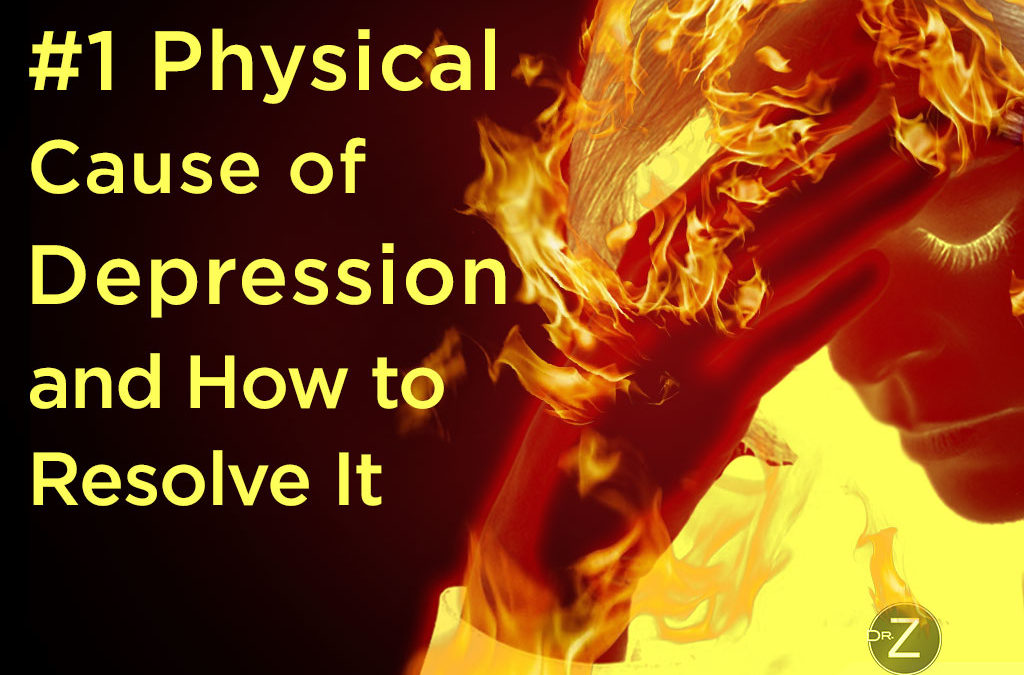What is Depression?
Depression long has been considered a deficiency of the neurotransmitter serotonin.
While low serotonin is implicated in depressive disorders, research is now revealing another physical cause for depression—inflammation.
I know what you are thinking . . . and yes, depression can have a genetic component to it.
It has also biological factors, and psychological factors—negative life events, stressful work environment, early emotional and physical traumas as contributing factors.
Symptoms of depression can include:
- Decreased energy & fatigue
- Difficulty concentrating and making decisions
- Feelings of guilt, helplessness, or worthlessness
- Insomnia
- Loss of interest in hobbies, activities, and sex
- Loss of appetite, or times of overeating
- Feeling sad or anxious
- Thoughts of suicide
Treatment of Depression
Depression typically is treated with serotonin re-uptake inhibitors (SSRIs) that work by blocking the re-absorption of serotonin by the nerve that released it.
This sometimes improves symptoms of depression by giving the brain and nervous system more time to use serotonin. However, many people don’t respond to SSRIs, and many people become treatment-resistant.
The reason is that SSRIs work on just serotonin, not the other biological factors that can cause depressive symptoms.
In order to resolve and/or improve depression, you must look deeper into your internal terrain for biological clues, other than just low serotonin levels, that may be causing depression.
Depression is Driven by Inflammation
Other than low levels of serotonin, research is finding people with major depressive symptoms have high levels of inflammation and quinolinic acid.
To find the underlying reason for your depression, have your doctor order blood work, including the biomarkers C‑reactive protein (CRP), Interleukin‑6 (IL‑6), Interleukin-1 (IL-1), Tumor Necrosis Factor (TNF) and Haptoglobin.
These biomarkers are often elevated in those with depression. Don’t forget to get your vitamin‑D level checked. The blood level of vitamin D must be 60‑80ng/ml to really combat inflammation.
All this said, here are steps to take that will reduce inflammation:
- Eliminate bread, dairy, and processed sugars
- Re-balance your gut flora (bacteria)
- Exercise using high-intensity interval training. This entails periods of moderate exercise, building to short periods of intense movement. There are endless programs you can find and use, or create your own.
- Consider specific nutraceuticals (supplements):
- Fish oils to reduce inflammation
- Anti-oxidants, including vitamin C, needed to convert tryptophan into serotonin
- Vitamin B6 is needed to make neurotransmitters.
- Zinc is needed to combat inflammation and regulate neurological function.
- Magnesium helps reduce the harmful effects of the hormone cortisol.
I hope the video and this info helps you rebuild your body and your mind. I’d like to hear from you.
Please share your struggles and wins in the comments below. Your story may help others who suffer from depression.
Yours in Health,
—Z


Fabulous !! You always have incredibly helpful info : )
Thank you.